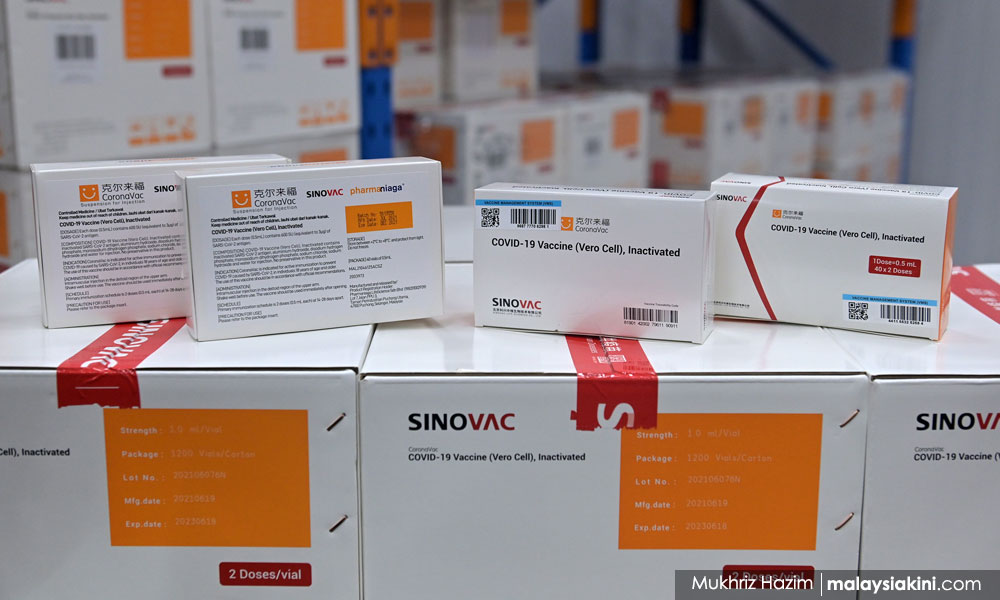China-developed vaccines based on inactivated virus particles had succeeded in preventing all cases of severe or critical illness during an outbreak involving the Delta Covid-19 variant in Guangdong, researchers reported.
The researchers also found that two doses of the vaccines were 69.5 percent effective in preventing pneumonia (ie moderate disease), though a single dose had negligible effect.
The study - which is still pending formal review by other experts - provides a first look at inactivated vaccines’ real-world performance against the highly transmissible and somewhat vaccine-resistant variant.
A preprint of the study conducted by the Guangdong Provincial Centre for Disease Control and Prevention has been posted on the repository SSRN on Aug 5 ahead of peer-review.
The study did not look at the vaccines’ effectiveness in preventing all Covid-19 symptoms, as typically done in such studies.
The study involved 10,813 adults infected during an outbreak of the Delta variant in Guangdong that lasted from May 21 to June 18, and identified through contact tracing up to June 23. The outbreak is focused around two streets within the city.
Of these, 5,888 people (54.5 percent) were unvaccinated, 1,407 (13 percent) were fully vaccinated, while the remainder were in various stages of being vaccinated.
For this study, full vaccination is defined as those who had a close contact with a known Covid-19 case at least 14 days after they have already received their second vaccine dose.
Among the fully vaccinated individuals, 807 (57.4 percent) had received Sinovac’s CoronaVac vaccine for their first dose, 597 (42.4 percent) received the Sinopharm-BBIBP-CorV vaccine, and three (0.2 percent) had the Sinopharm-WIBP vaccine.
For their second doses, 822 (58.4 percent) had the CoronaVac vaccine, 582 (41.4 percent) had the Sinopharm-BBIBP-CorV vaccine, and 3 (0.2 percent) had the Sinopharm-WIBP vaccine.
Of these, 85 unvaccinated people (1.44 percent) had developed pneumonia, compared to 5 people (0.36 percent) who were fully vaccinated.
In addition, 19 (0.32 percent) of the unvaccinated people had severe or critical illness, compared to zero among the vaccinated population.
The researchers did not analyse the effectiveness of each vaccine separately, saying the moderate Covid-19 incidence and vaccination rates seen in the study made any subgroup analyses impossible.
They added that although they had tried to account for all known variables in the study in calculating vaccine effectiveness - such as age, contact frequency with the index case, and occupation - there may still be other confounders that could affect the validity of their analyses. This is a common trait for all observational studies.
“Despite these two limitations, we believe that our study provides useful insights on the effectiveness of vaccines and suggested that inactivated vaccines may be effective against Covid-19 pneumonia and severe and critical Covid-19 associated with the B.1.617.2 variant of Covid-19, if fully vaccinated,” they said, referring to the Delta variant using a technical nomenclature.
For the record, the Sinovac vaccine has received conditional approval in Malaysia and is already in widespread use, including in the National Covid-19 Immunisation Program (NIP).
The Sinopharm-BBIBP-CorV vaccine (also known as Covilo) has also received conditional approval, but not the Sinopharm-WIBP. Neither vaccine is used in the NIP, with the former destined solely for the private market. - Mkini




No comments:
Post a Comment
Note: Only a member of this blog may post a comment.